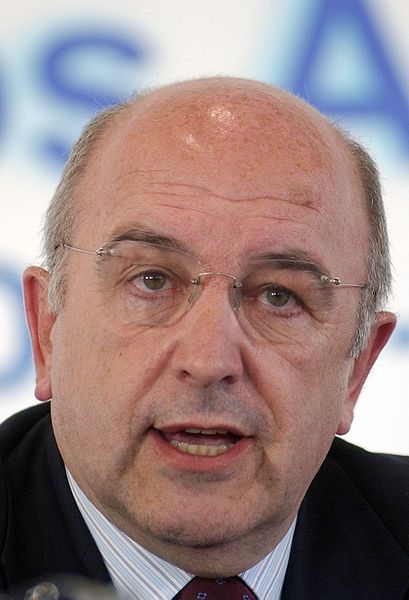

Photo by Agência Brasil
Standards and Protocols
When it comes to standards some minimum requirements must be met to ensure that the positive effects of standardisation can fully materialise. We have identified these requirements in the Commission’s draft guidelines on horizontal agreements which include an extensive discussion of standardisation.
The starting point is transparency: if technology is to be incorporated into a standard, then participants that own intellectual property that covers that technology should disclose their ownership. Without transparency, efficient decisions cannot be made.
For a standard to serve its purpose there should be a commitment to license on fair, reasonable and non-discriminatory terms. If so called “FRAND commitments” have been given, they should be adhered to. Moreover, those standardisation bodies that require full disclosure of the proposed terms and conditions of licensing can be assured that they will not infringe EU competition law by doing so.
ISO/IEC JTC1 Revises Directives, Addresses OOXML Abuses
[...]
First, we see the elimination of the contradiction phase in Fast Track processing. If you recall, under previous rules, a Fast Track begin with a 30-day NB review period, sometimes called the “contradiction period”, where NBs were invited to raise objections if they think the Fast Track proposal contradicts an existing ISO or IEC standard. This was followed by a 5-month ballot. The problem was that the word “contradiction” was not defined, leading to various irreconcilable interpretations. In the case of OOXML 20 JTC1 National Bodies (NBs) raised contradictions. Evidently, the passage of time has lead to no progress on defining what exactly a contradiction is, so the contradiction period has been eliminated entirely. Instead, looking for “evident contradictions” (still undefined) is given to JTC1 administrative staff, which is the surest way of guaranteeing that we never hear of contradictions again. The Fast Track DIS ballot remains at 5-months, so net-net this accelerates processing by one month.
Next, we see some clarification around how NBs should vote on Fast Tracks. Back, during the OOXML ballot, Microsoft made a huge effort to convince NBs to vote “Yes with comments” if they found serious flaws in the text, with the promise that they would all be addressed at the BRM. Well, we now know that this was a big lie. Very few issues were actually discussed and resolved at the BRM. And most of them were addressed by merely saying, “Sorry, no change”. At the time I argued that the rules were quite clear, that disapproval should be voiced by a “No, with comments” vote. Well, we now see another small slice of vindication.
[...]
Another change is that if the DIS ballot fails to get sufficient votes, meaning less than 2/3 approval of ISO/IEC JTC1 P-members, or more than 25% disapproval overall, the proposal dies at that point. It doesn’t go on to the BRM. Game over. If this rule had been in place back in 2007, OOXML would not be an ISO standard today.
Comments
Florian Mueller
2010-07-09 20:37:32
Dr. Roy Schestowitz
2010-07-09 22:44:39
Florian Mueller
2010-07-10 06:42:20
Samba didn't get a free pass. They decided not to seek a license because they believed they don't infringe the patents in question. They haven't been sued. But that's not the same as a free pass and especially not the same as a regulatory authority imposing royalty-free licensing.
Dr. Roy Schestowitz
2010-07-10 06:48:34
Anyway, the point I was making is that Europe shouldn't be schizophrenic about software patents.
twitter
2010-07-11 13:18:25
Hopefully the makers of that law can be intellectually consistent and avoid Uniform Fee Only licensing (aka RAND) in standards and monopolies on methods. Both are anticompetitive and outrageous taxes that must be paid to a private company without corresponding public benefit. Society should not grant exclusive ownership to business methods in the first place. If that mistake has been made, it is a further crime to require people to pay taxes on that method to do business with government.
Dr. Roy Schestowitz
2010-07-11 15:46:46
Florian Mueller
2010-07-09 18:27:00
However, Vice-President Almunia's responsibility is competition enforcement, and under competition law you simply can't require patent holders to go beyond FRAND. Article 102 TFEU doesn't give anyone a basis for imposing royalty-free terms by antitrust means. So Mr. Almunia's statement is simply based on a legal fact and I think it's fair to say he's most probably agnostic about software patents (his party actually opposed them during the process on the software patent directive).
I wanted to say this in defense of a politician I hold in the highest regard (and so do many MEPs including on the right wing although Mr. Almunia is formally a left-winger).
Dr. Roy Schestowitz
2010-07-09 19:09:25
twitter
2010-07-09 18:02:39
Dr. Roy Schestowitz
2010-07-09 18:15:31